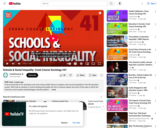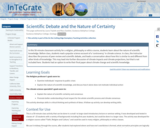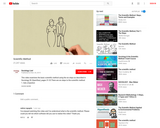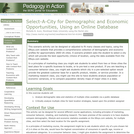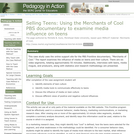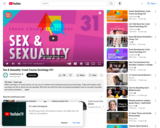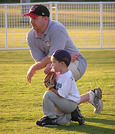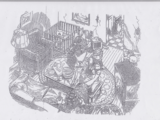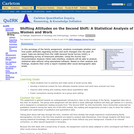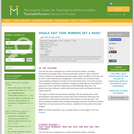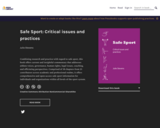
Short Description:
Combining research and practice with regard to safe sport, this book offers current and insightful commentary that addresses athlete voices, governance, human rights, legal issues, coaching, and officiating perspectives. Comprised of 18 chapters from 21 contributors across academic and professional realms, it offers comprehensive and open-access safe sport information for individuals and organizations within all levels of the sport system.
Long Description:
This edited book addresses a critical provincial and national sport sector issue – safe sport. Organizations within all levels of the sport system are currently facing crises in relation to safe experiences. It is imperative that comprehensive and open-access safe sport information be made available to students and instructors. Comprised of 18 chapters from 21 contributors across academic and professional realms, the book offers current and insightful commentary that addresses athlete voices, governance, human rights, legal issues, coaching, and officiating perspectives. Leveraging the Brock University Centre for Sport Capacity 2021 Safe Sport Forum’s diverse team of experts and attendee discussions, the edited book combines research and practice in safe sport. These themes are integrated with “from-the-field” cases, application exercises, and interactive multi-media to support students and instructors across a wide-range of disciplines, programs, and courses.
In this resource, athletes are the main priority. This edited book applies various perspectives to address the harassment and abuse of athletes, and the lack of administrative action in these instances which have been highlighted in recent cases in the media and the courts. Most importantly, the chapters acknowledge that the long-term negative ramifications of a failure to ensure safe sport for athletes at all levels of the Canadian sport system is a significant issue that requires discussion and action. Moving forward, sport leaders must make decisions to ensure the athlete is top-of-mind.
This edited book also offers a summary of where we currently stand in this safe sport movement, and an important perspective on what steps need to be taken next to put the words of the Universal Code of Conduct to Address and Prevent Maltreatment in Sport (UCCMS) into action. This resource offers ways to counter current challenges of the existing sport structure, to commit to safe sport values, and to enact these values through policies and programs. One resounding theme the authors have communicated in their own unique way is that safe sport requires effort from a variety of stakeholders at every level of the sports system. In other words, the safe sport movement requires support from coaches, sport officials, administrators and governing bodies, volunteers, athletes and participants, health professionals in Integrated Support Teams (ISTs), the legal system, parents and guardians, and more. Together, we can make safe sport possible.
Word Count: 119690
ISBN: 978-1-990208-12-6
(Note: This resource's metadata has been created automatically by reformatting and/or combining the information that the author initially provided as part of a bulk import process.)
- Subject:
- Law
- Social Science
- Sociology
- Material Type:
- Textbook
- Provider:
- Brock University
- Date Added:
- 02/14/2022

